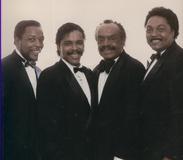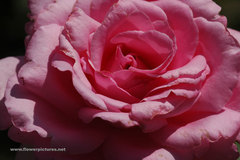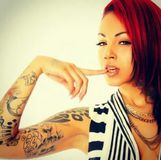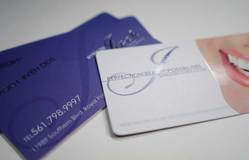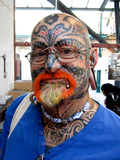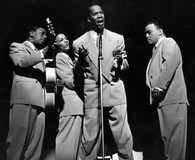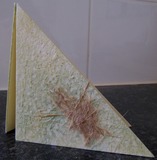The Ink Spots were an American vocal group popular in the 1930s and 1940s. Their music led to the rhythm and blues and rock and roll musical genres, and the subgenre doo-wop. The group was widely accepted in both the white and black communities, largely due to the ballad style introduced to the group by lead singer Bill Kenny. The group was inducted into the Rock & Roll Hall of Fame in 1999. Since the Ink Spots disbanded in 1954, there have been well over 100 vocal groups calling themselves "the Ink Spots" without any right to the name, and without any original members of the group. These groups often have claimed to be "2nd generation" or "3rd generation" Ink Spots. Many such groups are still touring today.
The Ink Spots songs often began with a four-bar guitar riff, using the chords I - #idim - ii7 - V7, followed by the tenor Bill Kenny, who sang the whole song through. After Kenny finished singing, the bass would either recite the first half, or the bridge of the song, or would speak the words, almost in a free form, that were not part of the song, commonly using the words "Honey Child", or "Honey Babe", expressing his love for his darling in the song. This was followed by Kenny, who finished up singing the last refrain or the last half of the song. On some songs Deek Watson would sing the lead rather than Bill Kenny. This was mostly on the uptempo "Jive" songs.


